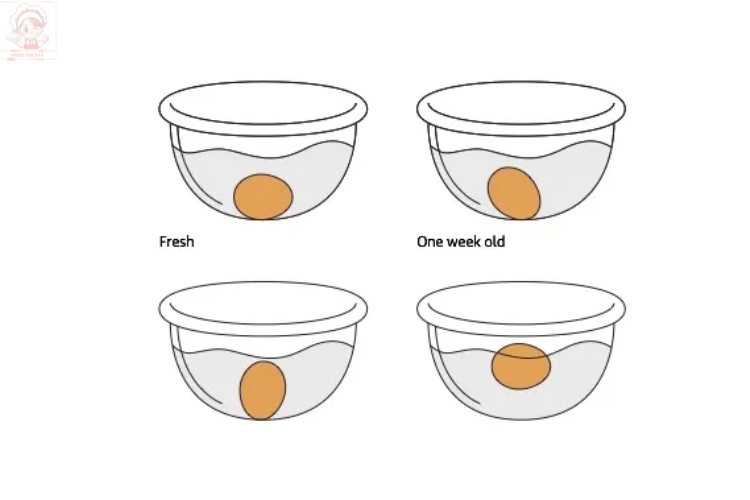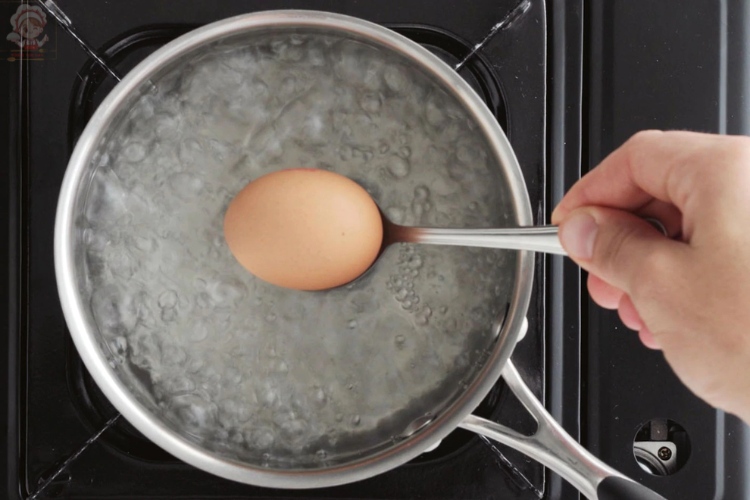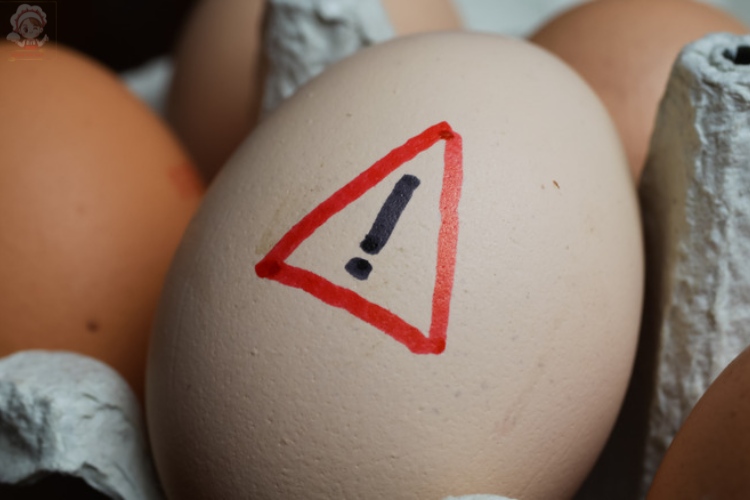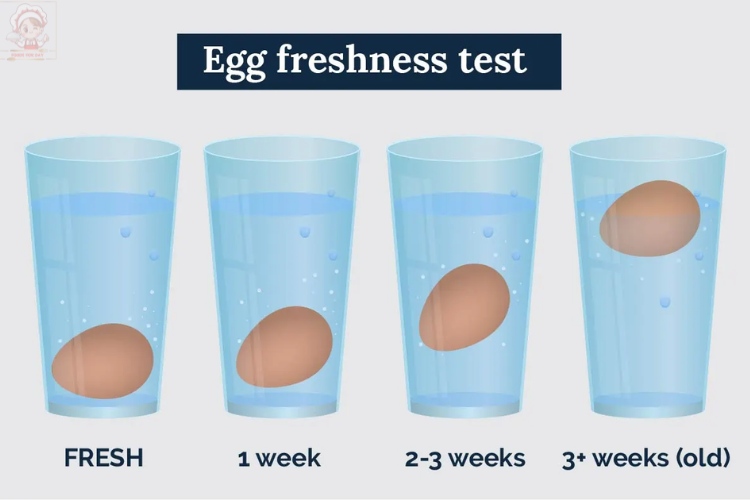As an experienced cook, I understand the significance of knowing how to determine if an egg is good or bad. It can be challenging, but with my expertise, I’ve learned reliable methods to check egg quality. These techniques ensure I use only fresh eggs in my recipes, resulting in exceptional cooking outcomes. So, let me share with you some practical insights on how to check if an egg is good or bad.
1. How do I check if an egg is good or bad?

- Check the expiration date: Look at the egg carton for the expiration or “best by” date. This tells you how long the eggs will be at their best quality. It’s recommended to use the eggs before this date for the freshest taste.
- Give it a sniff: Bring the egg close to your nose and give it a light sniff. Fresh eggs have a neutral or slightly eggy smell. If you notice a strong, unpleasant, sulfurous, or rotten odor, it’s likely spoiled. Trust your nose to determine if the egg is good to use.
- Examine the shell: Take a close look at the egg’s shell. Check for any visible cracks, leaks, or serious damage. Cracked or leaking eggs can allow bacteria to enter, so it’s best to avoid using them for safety reasons.
- Do the float test: Place the egg in a glass or bowl of water. A fresh egg will sink and rest flat on the bottom. The small air cell inside keeps it down. If the egg stands upright on the bottom or floats to the surface, it might be old and starting to spoil. Older eggs have larger air cells.
- Give it a gentle shake: Hold the egg close to your ear and give it a little shake. A fresh egg will have very little movement and won’t make much sound. The contents inside should be unchanged. If you hear a sloshing or splashing sound, it’s a sign that the contents have deteriorated, possibly indicating spoilage.
- Crack it open: Carefully crack the egg into a clean dish or bowl and examine the yolk and egg white. A fresh egg will have a plump, round yolk that sits prominently in the middle of a thick, clear egg white. The yolk should look distinct and hold its shape. If the yolk and egg white are flat, runny, discolored, or have a bad smell, they’re likely spoiled.
- Check the egg white consistency: Crack the egg to check the consistency of the egg white. A fresh egg will have a slightly gelatinous and viscous egg white that holds together well. If the egg white appears runny, excessively liquid, or lacks structure, it may indicate that the egg is no longer fresh.
Related Post:
2. The best way to stop eggs from spoiling

- Refrigerate them right away: When you bring eggs home from the store, pop them in the fridge as soon as possible. This helps keep them fresh by slowing down the growth of bacteria. Keep the fridge setting below 40°F (4°C).
- Keep them in the carton: Instead of transferring eggs to other containers or the fridge door, it’s best to store them in their original carton. The carton helps protect them from odors and temperature changes, keeping them in good condition.
- Watch out for strong-smelling foods: Eggs can pick up odors from strong-smelling foods in the fridge because their shells have tiny pores. To avoid any funky flavors, store eggs away from things like fish, onions, and garlic.
- Avoid temperature shocks: Quick changes in temperature can cause moisture to form on the eggshell, which creates a friendly environment for bacteria. So, try not to subject eggs to extreme temperature swings or put them directly from the fridge into hot water.
- Keep it clean: Before and after handling eggs, make sure to wash your hands. This helps prevent any bacteria from getting on the eggs. Also, use clean utensils when cracking eggs to avoid introducing any unwanted stuff.
- Check for freshness: When you’re about to use an egg, give it a quick check using the methods mentioned earlier. If the egg has bad smells, a cracked shell, or looks weird, it’s best to toss it out and use a fresh one.
- Use them within a reasonable time: In the fridge, your eggs can be fresh for a few weeks, but it’s generally recommended to use them as soon as possible. Just keep an eye on the “best by” or expiration date printed on the carton as a guide.
> Video good or bad eggs you can test eggs if they are good or bad:
3. What occurs if you consume a bad egg?

- Eating a spoiled egg can cause food poisoning or a foodborne illness. When you eat a rotten egg, you’re taking harmful bacteria like Salmonella into your body. The symptoms you get are nausea, vomiting, stomach pain, diarrhea, and sometimes a fever. The severity of these symptoms can vary depending on how contaminated the egg is and your own health condition.
- It’s important to know that not all bad eggs will make you sick since dangerous bacteria aren’t always obvious right away. However, if you eat eggs that are damaged, contaminated, raw, or not cooked, you increase your risk of getting a foodborne illness.
- To reduce the chance of eating a bad egg and the risk of illness, you should store and cook eggs properly.
- Use eggs before their expiration date, keep them in the fridge, and check for signs of spoilage before eating. Remember to cook eggs thoroughly to kill any potential bacteria.
- If you suspect that you’ve eaten a spoilage egg and have had symptoms of a foodborne illness for a long time, it’s wise to seek medical help.
4. FAQs relate to how to know if an egg is bad
4.1. Can I use eggs past their expiration date?
Eggs should not be used after their expiration date. The expiration date indicates the best quality and freshness. The quality of eggs declines and the chance of bacterial contamination rises as they get older. It is advisable to abide by the expiration date, toss out any lingering questions about the eggs’ quality, and emphasize food safety by handling and preparing the eggs carefully.
4.2. What does a fresh egg smell like?
Most fresh eggs smell neutrally or faintly like eggs. There are no overpowering or offensive smells. An excellent egg has a faint, clean scent that you may detect when you crack it open. If the egg gives out any sulfurous, rotting, or strongly unpleasant odors, it has been ruined and should not be eaten. To assess how fresh an egg is, rely on your sense of smell.
4.3. What are signs of a spoiled egg?
A rotten egg will smell bad, have a cracked or leaky shell, have an odd yolk or egg white, and float in water. For safety reasons, the advice is to throw away the egg if you see any of these symptoms.
4.4. How long do you store eggs in the refrigerator?
In the refrigerator, eggs can be kept for three to five weeks. They remain fresh and of high quality if kept in a refrigerator at or below 40°F (4°C). For the eggs to remain as fresh as possible, it is advised to utilize them by the expiration date or “best by” date printed on the box. To ensure security and a steady temperature, always keep eggs in their original carton.
4.5. Is the egg float test reliable?
The egg float test can give a broad sense of how fresh an egg is, although it is not always an accurate technique. An older egg may stand erect or float because of the air cell inside, but a young egg will normally sink and lay flat at the bottom of a bowl of water. However, the float test cannot tell whether an egg is safe to eat or rotten. On the other hand, you should check additional elements such as the egg’s odor, appearance, and expiration date. It is safer to throw away an egg if you are unsure about its freshness.
4.6. How do you test an egg in water?
- In a glass or bowl of water, put an egg to see if it will float.
- The egg is fresh if it drops to the bottom and rests flat.
- Although less fresh, food is still safe to consume if it is upright or slightly tilted.
- It should be thrown away if it floats to the surface since it is probably rotten.
4.7. Can you eat eggs two months out of date?
Eggs that are more than two months old are often not advised to be consumed. The expiration date indicates the ideal time to consume the eggs at their peak quality. As eggs age, they lose quality and are more likely to become contaminated with bacteria. It’s preferable to consume eggs within the suggested time limit and adhere to the expiration date to maintain food safety. It is safer to throw away the eggs if you are unsure or if they were incorrectly preserved.
4.8. Why is my egg not floating in saltwater?
Because the density of the egg is greater than that of the saltwater solution, the egg does not float in saltwater. Fresh eggs sink in saltwater because they have a higher density. Fresh eggs sink in the float test, while older eggs tend to float, making it a common method for determining an egg’s freshness. To determine the quality and safety of the egg, it’s crucial to take into account additional freshness indicators, such as odor, appearance, and the expiration date.
I’m Elva, a housewife with a strong passion for cooking who has improved her cooking skills over time. Thanks to my comprehensive knowledge of culinary techniques and my ability to prepare a wide range of meals, I fill my house with warmth and mouthwatering flavors. I am aware that cooking is an expressive activity that goes beyond simply preparing food for my loved ones.
